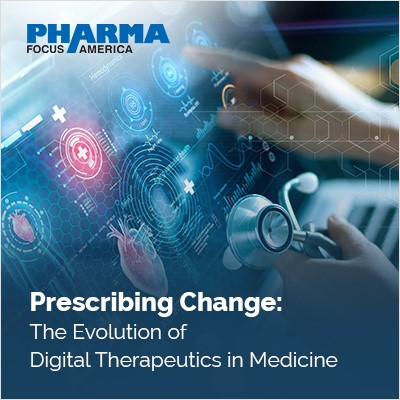views

Prescribing Change: The Evolution of Digital Therapeutics in Medicine

Introduction:
In recent years, the healthcare industry has experienced a profound shift with the advent of digital therapeutics. These innovative solutions, often referred to as software-based interventions, have revolutionized the traditional approach to medical treatments. Digital therapeutics encompass a wide range of healthcare technologies and interventions that leverage digital platforms such as mobile apps, wearable devices, and online platforms to deliver personalized medical treatments. Unlike conventional pharmaceuticals that rely on chemical compounds, digital therapeutics rely on algorithms, data analytics, and personalized insights to diagnose, manage, and treat various medical conditions. This evolution in healthcare technology has significantly impacted patient care, leading to improved outcomes, enhanced accessibility to healthcare services, and greater patient empowerment.
Understanding Digital Therapeutics
Digital therapeutics represent a paradigm shift in healthcare delivery, focusing on leveraging technology to optimize patient care and outcomes. These interventions are designed to address specific medical conditions by delivering evidence-based interventions through digital platforms. Examples of digital therapeutics include mobile apps for diabetes management, virtual reality programs for pain management, and online cognitive behavioral therapy (CBT) platforms for mental health support. By harnessing the power of digital tools, healthcare providers can deliver personalized interventions, track patient progress in real time, and adjust treatment plans based on individual needs. This approach not only improves treatment adherence but also enhances patient engagement and satisfaction with healthcare services.
The Rise of Telemedicine and Remote Patient Monitoring
Telemedicine and remote patient monitoring have played a pivotal role in driving the adoption of digital therapeutics. Telemedicine refers to the delivery of healthcare services remotely, using telecommunications technology to connect patients and healthcare providers. Remote patient monitoring involves the use of wearable devices, sensors, and other digital tools to track patient health metrics outside of traditional healthcare settings. These technologies enable healthcare providers to monitor patients' vital signs, medication adherence, and overall health status from a distance, facilitating proactive interventions and timely adjustments to treatment plans. The convenience and accessibility offered by telemedicine and remote monitoring have revolutionized healthcare delivery, especially for patients with chronic conditions or limited access to in-person care.
Personalized Medicine and Data Analytics
Digital therapeutics play a pivotal role in advancing personalized medicine through data analytics and predictive modeling. These technologies harness vast amounts of patient data, including genetic information, biomarkers, clinical histories, lifestyle factors, and real-time health metrics, to create individualized treatment plans. Data analytics algorithms identify patterns, correlations, and predictive insights that guide healthcare providers in tailoring interventions to meet the unique needs of each patient.
Learn more: https://www.pharmafocusamerica.com/articles/the-evolution-of-digital-therapeutics-in-medicine
Follow us:





















Comments
0 comment